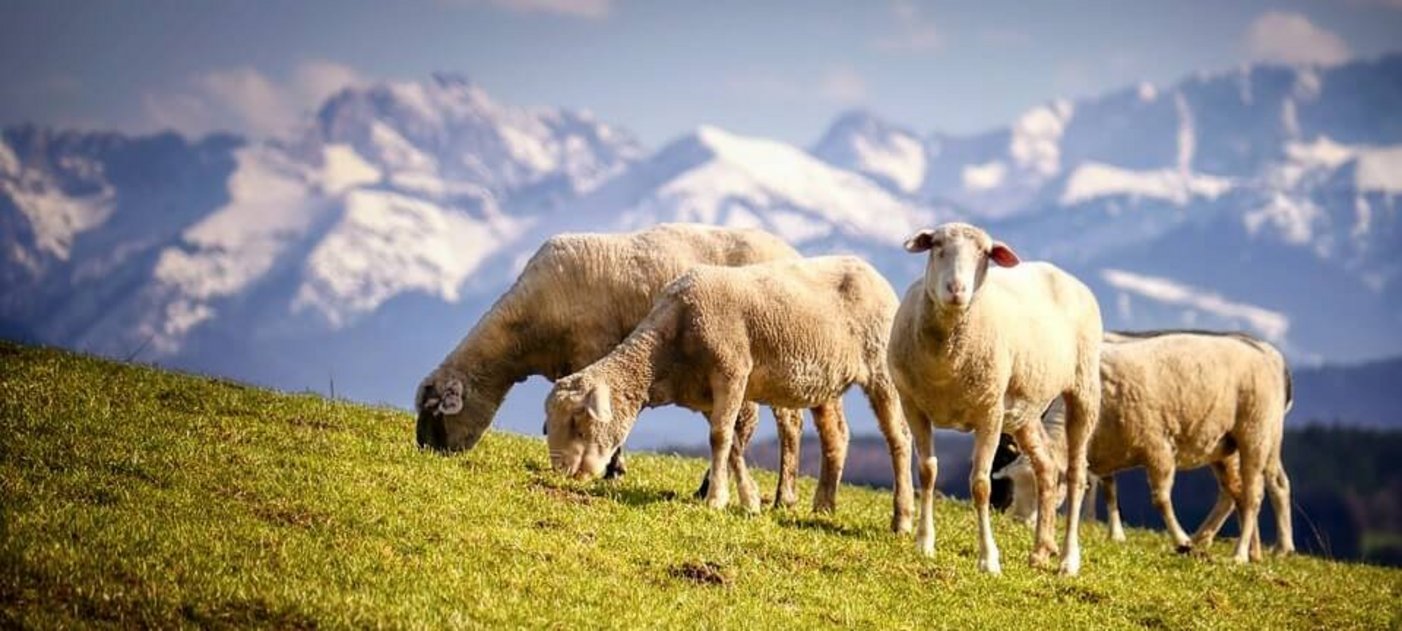Improving livestock protection in the German-speaking Alpine Region
Projekt leadership at the Research Institute of Wildlife Ecology: Felix Knauer
In many regions of Europe, the wolf became locally extinct in the late 19th and early 20th centuries due to human persecution. A major argument in favour of its eradication was that the presence of this large predator threatened livestock survival and thus the livelihoods of local farmers. After the species had been almost completely extinct for several decades, the wolf received protection status for the first time in 1973 and is now listed as a priority species in Appendix II of the Habitats Directive 92/43/EEC (1992). Due to its protection, the surviving wolf populations have shown significant expansion dynamics. Individuals returned to their earlier distribution in Europe, and wolves have been recolonizing the Alps since the 1990s.
However, the majority of wolf packs from the Italian Alpine population are located in the western Italian Alps, with only 8 packs in the Trentino-Alto Adige project area in the eastern Italian Alps. The main threat to wolves is the low social acceptance and low tolerance for their return. Surveys from 2018-2019 showed that 22% of Austrians, 35% of South Tyroleans and 21% of Bavarians have a negative attitude towards wolves. In South Tyrol, 31.9% of people still believe that killing a wolf is the right solution for problematic wolves.
This negative attitude is mainly represented in the agriculture sector due to the damage to livestock in their regions. The first innovative farmers' organizations have recognized that defining and implementing effective strategies for a coexistence with wolves and other wildlife is fundamental to a sustainable, long-term solution between the agricultural sector and conservation interests.
Applying a conservation approach, this project will provide capacity building training on the knowledge needed to improve livestock welfare implementation and increase the acceptance of the wolf presence among key stakeholders in the German-speaking Alps. This will ultimately contribute to the long-term conservation of the transboundary Alpine wolf population. The aim is to increase the acceptance of livestock protection as a solution to reducing human-wolf conflict by developing and implementing concrete measures with more than 1,000 farmers and reducing poaching cases in favour of wolf protection.
Using an innovative conservation and bottom-up approach, peer-to-peer capacity-building training is being held through farmer associations. This is the first LIFE project ever in which farmer associations take on the coordinating role and respond directly to the demands of the farming community by ensuring their active engagement. As part of the project, a cross-border network of trained experts will be created in order to achieve an effective and uniform implementation of livestock protection in the project areas and to minimize human-wolf conflict. The network is to be supported after the end of the project in order to ensure the long-term sustainability of the project results.
Furhter FIWI team members
Theresa Walter
Isabella Faffelberger
Overall project coordination
BIO AUSTRIA Niederösterreich und Wien, Matthias Corvinusstraße 8/UG, 3100 St. Pölten, Österreich
Duration
01 September 2020-31 August 2025
(Further) Project partners
Betrieb Landesmuseen, Pascolistraße 2/a, 39100 Bozen, Italien
Bioland Beratung GmbH, Kaiserstr. 18, 55116 Mainz, Deutschland
Bund Naturschutz Bayern E.V. (BN), Dr.-Johann-Maier-Straße 4, 93049 Regensburg, Deutschland
European Wilderness Society, Dechant Franz Fuchs Str. 5 , 5580 Tamsweg, Österreich
Naturschutzbund, Museumsplatz 2, 5020 Salzburg, Österreich
Österreichzentrum Bär, Wolf, Luchs, Altirdning 11, 8952 Irdning-Donnersbachtal, Österreich
Societa Cooperativa Sociale Eliante Onlys, Via San Vittore, 49, 20123 Milano, Italien
Umweltdachverband, Strozzigasse 10/8-9, 1080 Wien, Österreich
Co-financed by the Europäische Union
Programme: EU LIFE 2014-2020
